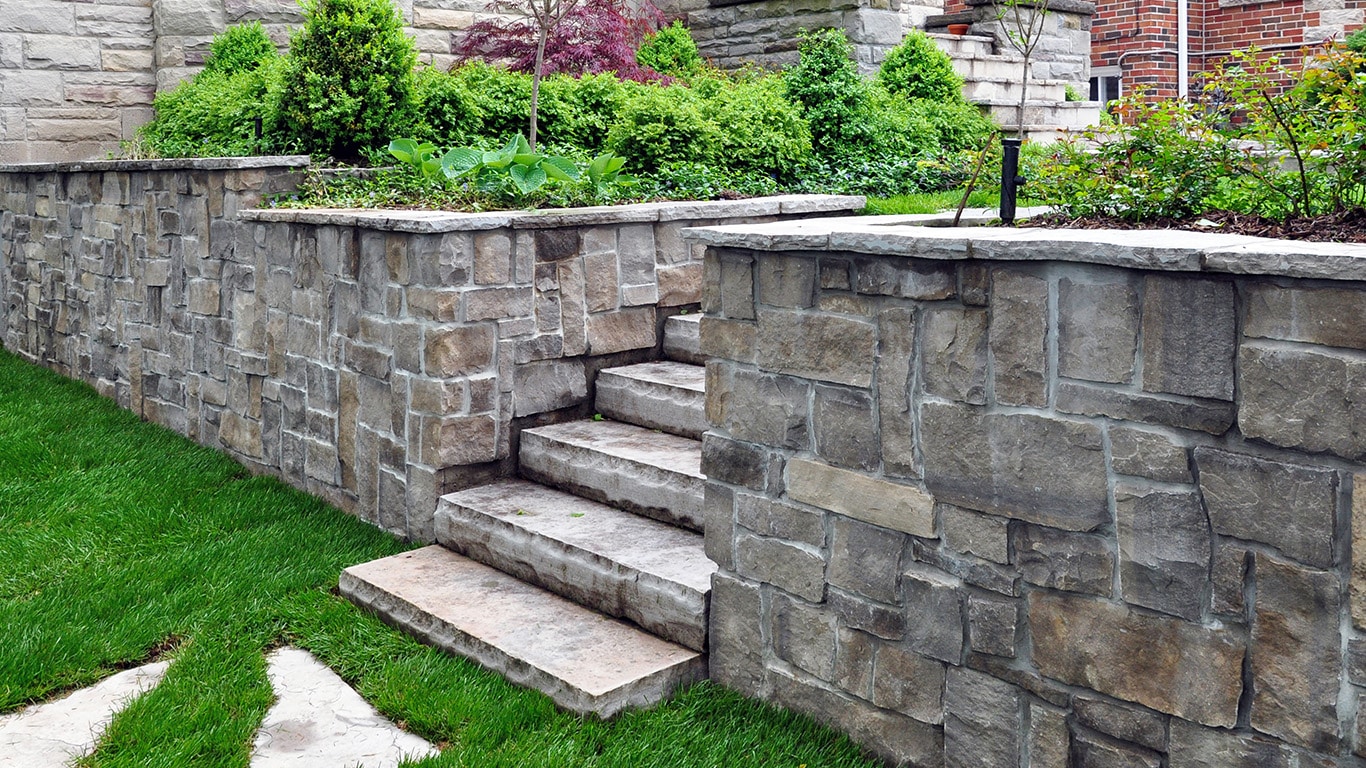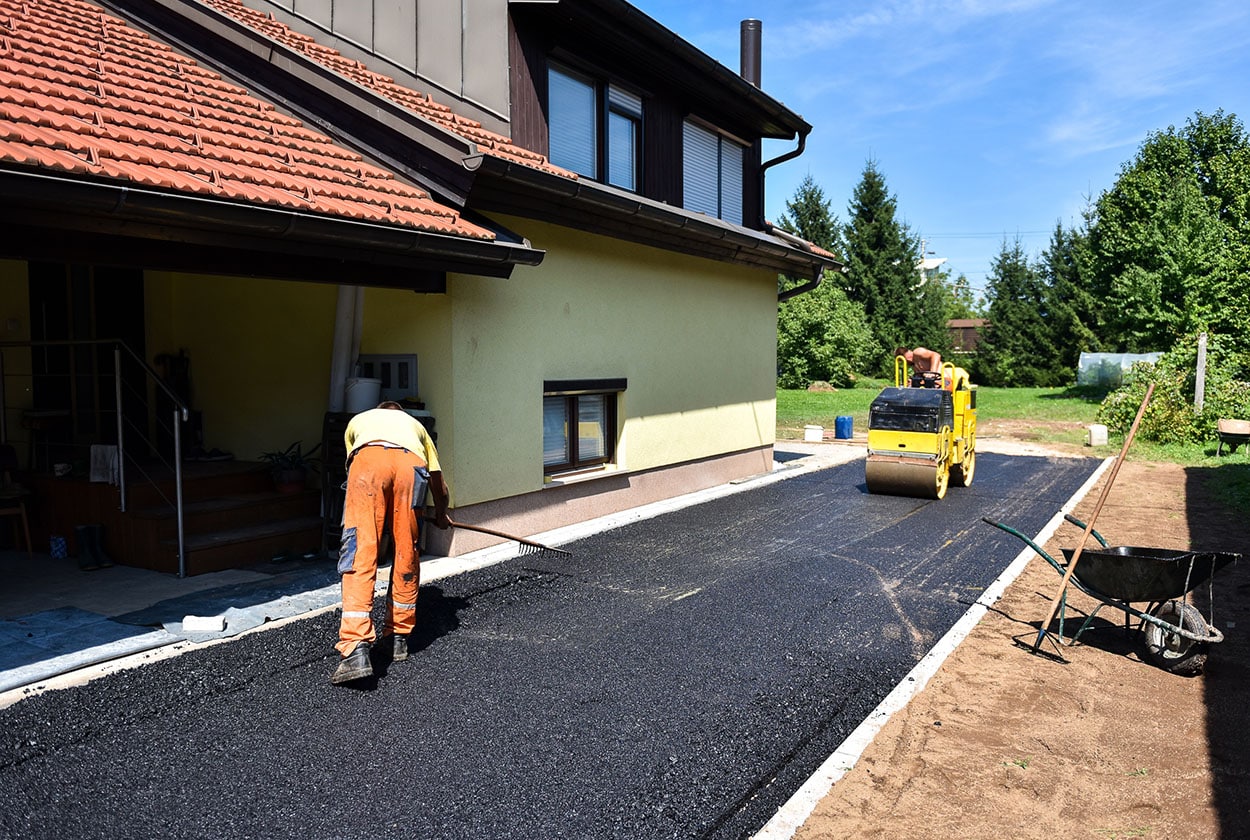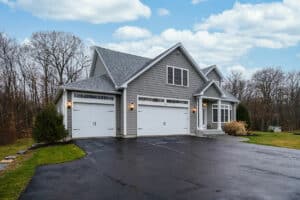
Different Types of Stone Walls
Types of Natural Stone Walls
With assorted materials and techniques, constructing a natural stone wall is an intriguing project for us to undertake, with each structure offering its own individual allure. As a customer you need to be aware of your preferences as well as your financial constraints when choosing the perfect stone wall tailored specifically for you and your home.
Fieldstone Walls:
Fieldstone is any type of stone extracted directly from the earth. As it has been rolling around in soil for centuries, fieldstone tends to be more rounded than freshly harvested or quarried stones. Fieldstones are usually gathered locally and cost less compared to other walling materials – although prices may vary depending on sorting different batches into similar shapes, sizes, and colors. Most stone yards segregate their piles based on size (flats/rounds), weathered aspects, as well as a combined pile containing all previously mentioned qualities.If you visit the supply yard, they will provide an array of fieldstone that has been meticulously sorted and picked based on certain criteria. It is important to bear in mind that the quality of fieldstone can differ drastically from one supplier to another or even between seasons. That’s why it is essential for us to examine them personally before making any purchase decisions.
Fieldstone is the perfect choice for walls of any size, from minimal freestanding stones to complex structural retaining walls. Its cost-efficiency and large stone availability makes it especially ideal for more substantial projects. Although with enough care a high level of finish can be achieved, fieldstone generally has a less flat and consistent face/cap than other types of stonework.
Pennsylvania Fieldstone Wall:
Pennsylvania Fieldstone is an unmistakable type of fieldstone found in nearby supply yards. It is a flat, smaller-sized stone that comes pre-packaged on wooden pallets and tends to come at a higher price than general fieldstone. PA Fieldstone works great for small walls but can be used for more substantial constructions too – although its stones must be set in mortar so they don’t displace or get knocked out of alignment. Even with the added support provided by mortar, these walls are still built with traditional dry lay techniques, giving them their classic appearance.
Colonial Wallstone:
Colonial Wallstone, an alluring flat stone much like PA Fieldstone, is obtained from bluestone quarries and consists of pieces which are not suitable for large patio stones. Colonial Wallstones have recently been broken/quarried – making their faces remarkably smooth. Furthermore, the softer texture makes it easy to carve with a chisel and hammer. The use of this wallstone produces a tight fitting finish that looks dry-laid in spite of being mortared together!
Antique Granite Wallstone:
Our region is rich with many types of granite, but we’re specifically referring to the quarried white variety that you often find used for steps, cobble stones, posts and curbing. Quarried granite typically comes in rectangular pieces which are easily fit together as a snug wall. Furthermore, antique granites can be assembled dry-stacked or mortared if needed!
Split Face/Mosiac Wall
Split face or Mosiac Walls feature freshly cut and broken fieldstone or quarried stone. The flat side of the stones is used to create a façade for the wall, unlike stacking them solely to provide sturdiness. This means that mortar must be utilized in order hold it together, making it obvious even to an untrained eye that weight isn’t responsible for keeping its shape! Working with split stone and mortar ensures a smooth, even finish, however it sacrifices the heftiness and naturalness of an old-style stonewall.
Veneer Wall:
Mortared stone walls, also known as veneer walls, are commonly installed on houses and foundations. These walls feature face stones that have been adhered to a structural concrete base/backing. There is an array of different types of stone veneers available today; from those manufactured and sliced into ~1″ thicknesses for easier installation, to naturally flat stones like Colonial Wallstone or PA Fieldstone. Veneer stones come in a variety of thicknesses, from 1 to 4 inches. It’s straightforward to slice and piece these together for an attractive finish, with the larger face more visible on the wall.
Modular Block Wall:
Concrete wall blocks are a manufactured product that can effectively substitute for natural stone walls when constructing masonry. There is an incredible selection of concrete block designs with different engineering systems and specs – all drier laid, allowing for much faster installation than their stone counterparts. Aside from its aesthetic value, this construction material comes at a cost-effective rate compared to traditional stones walls – making it the perfect choice in terms of both quality and budget!



